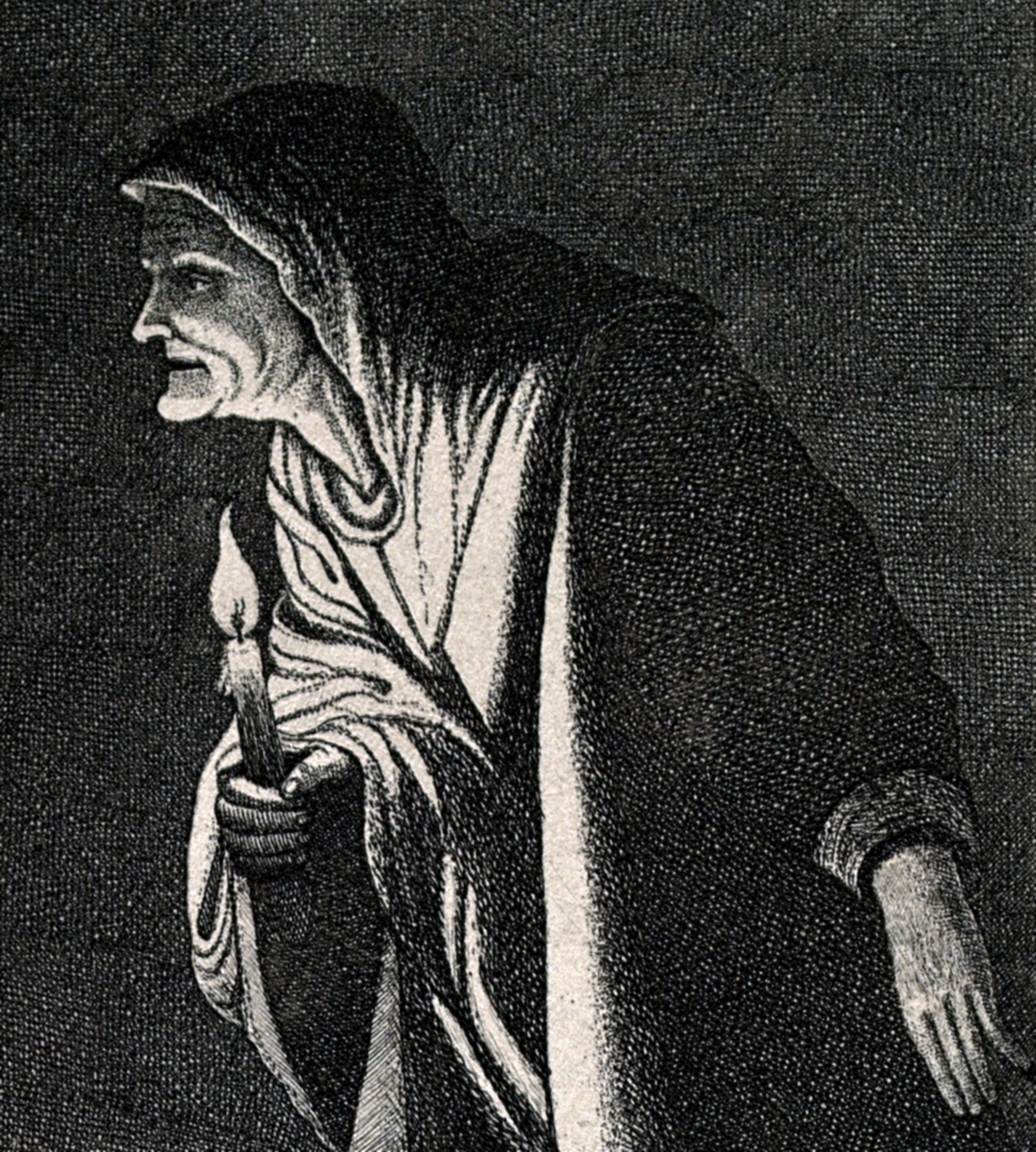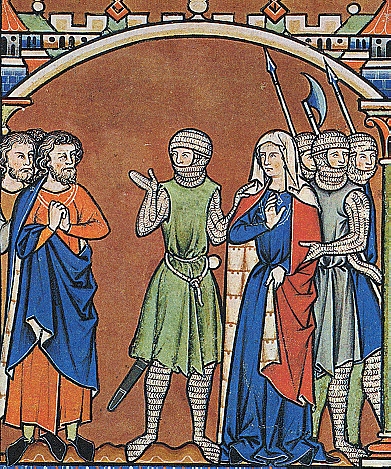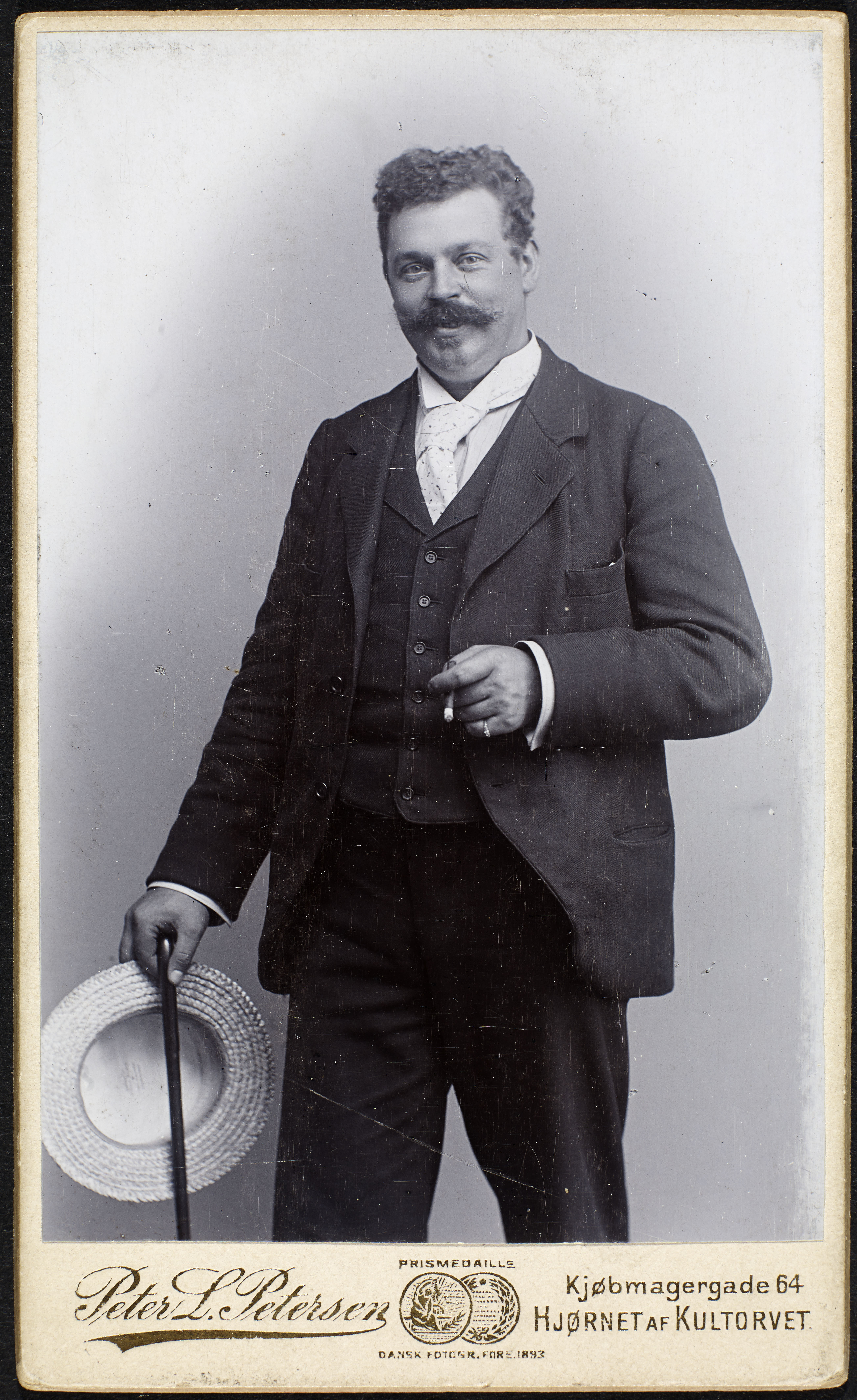|
Saul And David
''Saul og David'' (''Saul and David'') is the first of the two operas by the Danish composer Carl Nielsen. The four-act libretto, by Einar Christiansen, tells the Biblical story of Saul's jealousy of the young David, taken from the Book of Samuel. The first performance was at the Royal Danish Theatre, Copenhagen, on 28 November 1902. The opera is one of Denmark's most important musical works for the theatre but it is difficult to stage as the dramatic episodes are often separated by longer, less dynamic sequences. The choral scenes are certainly among the opera's highlights. The music, which is both dramatic and lyrical, is free of any late Romantic effects. This might, however, explain why the work has not gained wider popularity. Composition history The music was composed rather slowly over a period of two years, partly in Copenhagen, partly when Nielsen was in Rome on an extended stay between December 1899 and June 1900. Completed in April 1901, the work was submitted to the ... [...More Info...] [...Related Items...] OR: [Wikipedia] [Google] [Baidu] |
Carl Nielsen
Carl August Nielsen (; 9 June 1865 – 3 October 1931) was a Danish composer, conductor, and violinist, widely recognized as his country's most prominent composer. Brought up by poor yet musically talented parents on the island of Funen, he demonstrated his musical abilities at an early age. He initially played in a military band before attending the Royal Danish Academy of Music in Copenhagen from 1884 until December 1886. He premiered his Opus number, Op. 1, ''Suite for String Orchestra (Nielsen), Suite for Strings'', in 1888, at the age of 23. The following year, Nielsen began a 16-year stint as a second violinist in the Royal Danish Orchestra under the conductor Johan Svendsen, during which he played in Verdi's ''Falstaff (opera), Falstaff'' and ''Otello'' at their Danish premieres. In 1916, he took a post teaching at the Royal Danish Academy and continued to work there until his death. Although his symphonies, concertos and choral music are now internationally acclaimed, ... [...More Info...] [...Related Items...] OR: [Wikipedia] [Google] [Baidu] |
Michal
Michal (; ; ) was, according to the first Book of Samuel, a princess of the United Kingdom of Israel; the younger daughter of King Saul, she was the first wife of David (), who later became king, first of Judah, then of all Israel, making her queen consort of Israel. In the Bible identifies Saul's elder daughter as Merab and younger daughter as Michal. Michal's story is recorded in the first Book of Samuel, where it is said in and that Michal loved David. The narrative does not indicate whether this is reciprocated. After David's success in battle against the Philistine giant Goliath, Merab was given in marriage to Adriel. Later, after Merab had married Adriel the Meholathite, Saul invited David to marry Michal. David replied, "I am a poor and lightly esteemed man", meaning that he was unable to provide a bride price. Saul then advised him that no bride price was required except for the foreskins of 100 Philistines. David took part in a further battle, killed 200 ... [...More Info...] [...Related Items...] OR: [Wikipedia] [Google] [Baidu] |
Gilgal
Gilgal ( ''Gilgāl''), also known as Galgala or Galgalatokai of the 12 Stones ( or , ''Dōdekalithōn''), is the name of one or more places in the Hebrew Bible. Gilgal is mentioned 39 times, in particular in the Book of Joshua, as the place where the Israelites camped after crossing the Jordan River (Joshua 4:19 – 5:12). The Hebrew term ''Gilgal'' most likely means "circle of stones". Its name appears in Koine Greek on the Madaba Map. Places named Gilgal in the Bible In Joshua 4–5 According to Joshua 4:19, Gilgal is a location "on the eastern border of Jericho" where the Israelites encamped immediately after crossing the Jordan River. There, they erected twelve stones as a memorial to the miraculous stopping of the river when they crossed. Joshua then ordered the Israelites who had been born during the Exodus to be circumcised at this spot. The Bible refers to this place as ''Givat Ha'aralot'', then says that Joshua called the place Gilgal because, in his words, "today ... [...More Info...] [...Related Items...] OR: [Wikipedia] [Google] [Baidu] |
Contralto
A contralto () is a classical music, classical female singing human voice, voice whose vocal range is the lowest of their voice type, voice types. The contralto's vocal range is fairly rare, similar to the mezzo-soprano, and almost identical to that of a countertenor, typically between the F below middle C (F3 in scientific pitch notation) to the second F above middle C (F5), although, at the extremes, some voices can reach the D below middle C (D3) or the second B above middle C (B5). The contralto voice type is generally divided into the coloratura, lyric, and dramatic contralto. History "Contralto" is primarily meaningful only in reference to classical and operatic singing, as other traditions lack a comparable Voice classification in non-classical music, system of vocal categorization. The term "contralto" is only applied to female singers; men singing in a similar range are called "countertenors". The Italian terms "contralto" and "alto" are not synonymous, "alto" technic ... [...More Info...] [...Related Items...] OR: [Wikipedia] [Google] [Baidu] |
Witch Of Endor
The Witch of Endor (), according to the Hebrew Bible, was consulted by Saul to summon the spirit of the prophet Samuel. Saul wished to receive advice on defeating the Philistines in battle after prior attempts to consult God through sacred lots and other means had failed. However, what was summoned (whether the actual ghost of Samuel or a spirit impersonating him) delivered a prophecy of doom against Saul and his army, who were defeated. This event occurs in 1 Samuel 28:3–25 and is also mentioned in the deuterocanonical Book of Sirach. Etymology The Hebrew Bible calls her "a woman, possessor of an ''ʾōḇ'' at En Dor," apparently a settlement around a spring. The word ''ov'' has been suggested by Harry A. Hoffner to refer to a ritual pit for summoning the dead from the netherworld based on parallels in other Near Eastern and Mediterranean cultures. The word has cognates in other regional languages (cf. Sumerian ''ab'', Akkadian ''âbu'', Hittite ''a-a-bi'', Ugaritic ''i ... [...More Info...] [...Related Items...] OR: [Wikipedia] [Google] [Baidu] |
Boy Soprano
A boy soprano (British and especially North American English) or boy treble (only British English) is a young male singer with a voice in the soprano range, a range that is often still called the treble voice range (in North America too) no matter how old. Origins In the Anglican and English Catholic liturgical traditions (in which girls and women did not sing in church choirs), young male choristers were normally referred to as "trebles" rather than as boy sopranos, but today the term "boy trebles" is increasingly common (girls with high voices are trebles too). The term "treble" derives from the Latin ', used in 13th and 14th century motets to indicate the third and highest range, which was sung above the tenor part (which carried the tune) and the alto part. Another term for that range is '. The term "treble" itself was first used in the 15th century. Trebles have an average range of A3 to F5 (220–700 Hz). The term ''boy soprano'' originated with Henry Stephen C ... [...More Info...] [...Related Items...] OR: [Wikipedia] [Google] [Baidu] |
Abishai (biblical Figure)
Abishai was a military leader under the biblical King David. He was the eldest son of David's sister Zeruiah. According to Josephus (Antiquities, VII, 1, 3) his father was called Suri. The meaning of his name is "Father of a gift". He was the brother of Joab and Asahel. Abishai was the only one who accompanied David when he went to the camp of Saul and took the spear and water bottle from Saul as he slept. After a battle between Judah and Israel, his brother Asahel chased the northern army's general Abner, and was killed by the back of Abner's spear. Joab and Abishai were enraged at the death of Asahel, and later murdered Abner. David disowned responsibility for the murder, led a national lament for Abner, and pronounced a curse on Joab and Abishai, saying, "these men the sons of Zeruiah are too hard for me; the LORD reward the evildoer according to his wickedness." Abishai had the command of one of the three divisions of David's army at the battle with Absalom. He was the comm ... [...More Info...] [...Related Items...] OR: [Wikipedia] [Google] [Baidu] |
Helge Nissen
Helge Nissen (5 September 1871 – 5 October 1926) was a Danish operatic bass-baritone, conductor, voice teacher, and film actor who was associated with the Royal Danish Theatre from 1897 until his death in 1926. He notably created roles in the world premieres of two operas by composer Carl Nielsen: Abner in ''Saul og David'' (1902) and Henrik in ''Maskarade'' (1906). His voice is preserved on a total of 70 recordings made with the Pathé, His Master's Voice and Deutsche Grammophon record companies from 1908 to 1914. Life and career Born in , Vinderup, near Holstebro, Nissen's brother was the opera singer Niels Frederik Nissen. He studied singing in Copenhagen with composer Leopold Rosenfeld. He made his professional debut in 1897 at the Royal Danish Theatre (RDT) as Mephistopheles in Charles Gounod's ''Faust''. He continued to sing leading roles at the RDT until 1912 when he shifted his career away from singing towards work as a voice teacher, conductor and director at the RDT. A ... [...More Info...] [...Related Items...] OR: [Wikipedia] [Google] [Baidu] |
Abner
In the Hebrew Bible, Abner ( ) was the cousin of King Saul and the commander-in-chief of his army. His name also appears as "Abiner son of Ner", where the longer form Abiner means "my father is Ner". Biblical narrative Abner is initially mentioned incidentally in Saul's history, first appearing as the son of Ner, Saul's uncle, and the commander of Saul's army. He then comes to the story again as the commander who introduced David to Saul following David's killing of Goliath. He is not mentioned in the account of the disastrous battle of Gilboa when Saul's power was crushed. Seizing the youngest but only surviving of Saul's sons, Ish-bosheth, also called Eshbaal, Abner set him up as king over Israel at Mahanaim, east of the Jordan. David, who was accepted as king by Judah alone, was meanwhile reigning at Hebron, and for some time war was carried on between the two parties. The only engagement between the rival factions told at length was preceded by an encounter at Gibeon ... [...More Info...] [...Related Items...] OR: [Wikipedia] [Google] [Baidu] |
Bass (voice Type)
A bass is a type of classical male singing voice and has the lowest vocal range of all voice types. According to '' The New Grove Dictionary of Opera'', a bass is typically classified as having a vocal range extending from around the second E below middle C to the E above middle C (i.e., E2–E4). Its tessitura, or comfortable range, is normally defined by the outermost lines of the bass clef. Categories of bass voices vary according to national style and classification system. Italians favour subdividing basses into the ''basso cantante'' (singing bass), ''basso buffo'' (comical bass), or the dramatic ''basso profondo'' (deep bass). The American system identifies the bass-baritone, comic bass, lyric bass, and dramatic bass. The German '' Fach'' system offers further distinctions: Spielbass (Bassbuffo), Schwerer Spielbass (Schwerer Bassbuffo), Charakterbass (Bassbariton), and Seriöser Bass. These classifications tend to describe roles rather than singers: it is rare for ... [...More Info...] [...Related Items...] OR: [Wikipedia] [Google] [Baidu] |
Samuel
Samuel is a figure who, in the narratives of the Hebrew Bible, plays a key role in the transition from the biblical judges to the United Kingdom of Israel under Saul, and again in the monarchy's transition from Saul to David. He is venerated as a prophet in Judaism, Christianity, and Islam. In addition to his role in the Bible, Samuel is mentioned in Jewish rabbinical literature, in the Christian New Testament, and in the second chapter of the Quran (although the text does not mention him by name). He is also treated in the fifth through seventh books of '' Antiquities of the Jews'', written by the Jewish scholar Josephus in the first century. He is first called "the Seer" in 1 Samuel 9:9. Biblical account Family Samuel's mother was Hannah and his father was Elkanah. Elkanah lived at Ramathaim in the district of Zuph. His genealogy is also found in a pedigree of the Kohathites (1 Chronicles 6:3–15) and in that of Heman the Ezrahite, apparently his grandson (1 ... [...More Info...] [...Related Items...] OR: [Wikipedia] [Google] [Baidu] |
Peter Cornelius (opera Singer)
Peter Cornelius (4 January 1865 in Asminderød – 30 December 1934 in Snekkersten) was a Danish opera singer. Biography Born in 1865, Cornelius made his professional opera debut at the Royal Danish Theatre in 1892 as baritone in the role of Escamillo in Georges Bizet's ''Carmen''. He was a member of that theatre until his retirement from the stage in 1922. In 1899, he began performing tenor roles while still performing many roles from the baritone repertoire. After 1902 he was heard frequently in the leading Wagnerian heldentenor parts such as Lohengrin, Parsifal, Siegfried, Siegmund, Walther, Tannhäuser and Tristan. He appeared as a guest artist with major opera house An opera house is a theater building used for performances of opera. Like many theaters, it usually includes a stage, an orchestra pit, audience seating, backstage facilities for costumes and building sets, as well as offices for the institut ...s throughout Europe. References 1865 births 1934 deaths ... [...More Info...] [...Related Items...] OR: [Wikipedia] [Google] [Baidu] |






